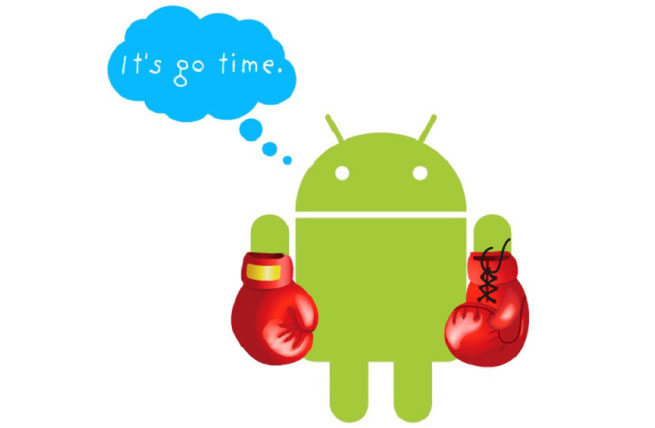Winning an argument against a “troll” is pretty much impossible within the confines of news article comment sections and social networks. However, when it comes to “patent trolls,” the situation can be quite different.
Yesterday, Google filed a formal complaint with the European Commission that accused Nokia and Microsoft of teaming up to increase smartphone device prices through the use of patent infringement legal disputes, reports the Wall Street Journal. Basically, the more Nokia and Microsoft can prove their patents are being infringed upon, the more money the two companies will make by competitors who submit blindly to licensing fees to avoid costly legal battles.
Google’s mobile operating system Android presents plenty of opportunities for companies like Nokia and Microsoft to cry “patent infringement.” And since Android represents a crucial piece of Google’s overall future business strategy, this is certainly a problem. Device manufacturers that use Android on their smartphones may have to pay fees to both Microsoft and Google — making Android much less attractive an option compared to, say, Windows Phone.
The reason Google filed the complaint had to do with Microsoft and Nokia funneling 1,200 patents into the care of intellectual property firm MOSAID. It’s worth explaining that the primary goal of every business is to make money, and MOSAID only makes money when legal battles spark up over patents it represents. This gives the IP firm an incentive to find companies that are potentially infringing on patents. A more crude description for this practice would be “patent trolling.”
What’s maddening about this practice is that it’s more or less acceptable, mostly because it’s rarely challenged on a large-scale basis.
So, Google’s best plan of attack is to stir up some attention to the issue of patent trolling and hope governing bodies like the European Commission hears them out. Google’s complaint also serves as sort of “troll bait” for Nokia and Microsoft, because if the companies respond, it draws more attention to the matter.
More attention to patent trolling means governing bodies are more likely to look at it critically. Got it?
Well, Nokia took the bait, responding to Google’s European Commission complaint with the following statement obtained by The Verge:
Though we have not yet seen the complaint, Google’s suggestion that Nokia and Microsoft are colluding on intellectual property rights is wrong. Both companies have their own intellectual property portfolios and strategies and operate independently.
Nokia has made regular patent divestments over the last five years. In each case, any commitments made for standards essential patents transfer to the acquirer and existing licenses for the patents continue. Had Google asked us, we would have been happy to confirm this, which could then have avoided them wasting the commission’s time and resources on such a frivolous complaint.
We agree with Google that Android devices have significant IP infringement issues, and would welcome constructive efforts to stop unauthorised use of Nokia intellectual property. Nokia has an active licensing program with more than 40 licensees. Companies who are not yet licensed under our standard essential patents should simply approach us and sign up for a license.
Nokia would like the public to believe that it’s far more concerned with “wasting the commission’s time and resources” than it is with Google’s accusations. But as I just explained, the mere fact that Nokia is responding means Google’s strategy is working. That doesn’t mean Google will necessarily win the favor of the European Commission, but it’s a good start.
Meanwhile, Google is also fighting accusations from Microsoft that its search engine is a monopoly that hinders competition from others (like Microsoft’s Bing). However, the EU’s antitrust chief seems more than willing to work with Google on the matter rather than take it to court.
I wonder if the same will be true with Nokia and Microsoft when it comes to their treatment of patents.
Image via AndroidUKnewsect
VentureBeat's mission is to be a digital town square for technical decision-makers to gain knowledge about transformative enterprise technology and transact. Learn More


